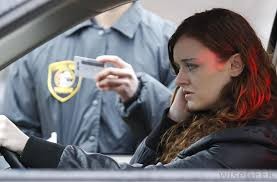
Know this: You will need a criminal defense lawyer. But when in the moment, these are the steps you should take.
Imagine this scenario: You are driving on the highway late at night in a place you’ve never been. You get pulled over because one of your tail lights is broken, unbeknownst to you. When you are pulled over, you feel indignant because you don’t know that you’ve actually done something that gives the police a proper reason to pull you over. You might react aggressively in this situation because in your eyes, you are innocent, you haven’t done anything to justify being stopped.
But try to put yourself in the police officer’s shoes. He doesn’t know you, it’s late at night, he might be alone, and most likely, he can’t see into your car. For all he knows, you could be a genuine threat. You need to respond with this in mind.
What to do if you're stopped by the police or arrested
- The first thing to do is put the car in park, shut off the engine and keep your hands somewhere they can be clearly seen. Roll down your window. Keep your headlights and interior lights on so the officer can see. This will make him feel less uneasy.
- When the officer approaches the car, be respectful no matter how upset you feel, or how arrogant the officer may get. If you are asked for your license and registration, take it out slowly and if you have to reach into the glove compartment or the center console, tell the officer that is what you are doing, and do it slowly. Don’t make any surprise movements, and wait until the officer gets to your car before you fish out your credentials. Say as little as possible. There is no reason for you to admit to anything, if asked. Assuming all goes well, you should get your ticket and be on your way.
But what happens if things get out of hand? What do you do then? Let’s say in this scenario, the officer directs you to get out of the car? Maybe he does a pat-down or even a full search of your person. Maybe he wants to look in the trunk of your car? Or in the passenger compartment? Suppose he starts questioning you about where you’ve been that night? Asks you if you have any weapons in the car, or if you have any drugs?
- Remember your rights: you need not answer any questions. You have the right to remain silent, so if the officer starts asking you questions that make you uncomfortable, you should explain that you would like to confer with your attorney before answering any questions. If the officer is playing by the rules, this should being any questioning to a halt. If he wants to search your car, you need not grant him your permission. This doesn’t mean that you can physically resist, but you can make it clear that you don’t consent. If you do consent, you will have given up any right to a search warrant or the requirement of probable cause, and any contraband or evidence found can be used against you.
Even if you think nothing in your car is problematic, there are situations where you should not let the police search. This is because you never really know what they are looking for. Suppose the police receive a description of a car that looks like yours that was used to rob a gas station. Further suppose the robbers used a baseball bat to assault the attendant. When you’re stopped, you give consent to search your trunk, and low and behold, you have a bat in the trunk that you use for Sunday softball games. But it looks just like the one the robbers used. Then you have a problem.
Another scenario involves the so-called, “stop and frisk” encounter. This is where the police, more or less without any reason, stop you and pat you down for weapons. This generally occurs in so-called “high crime areas.”
What should you do if the police want to pat you down?
- The obvious answer is to let them, especially if you have nothing to hide. But if you don’t want to be searched, just make that clear. Tell the officers you aren’t consenting to the search. Ask them why they want to pat you down. If you are in a public area where there are other people, you are probably safe enough to ask them what they saw you do that made them want to search you. If there are other people in the area, you can ask someone to stand by while they do this, so you have a witness to the encounter. But the same rules apply here as in the car stop: don’t challenge their power. If you do, they will respond aggressively. Let them do what they think they need to do, just don’t affirmatively consent to it. If you do these things, you will be safer, if not safe.
If you've been stopped by the police, and feel you need representation, that's where I come in. Don't go it alone. Call me today for a free consultation at (212)513-1300

